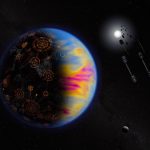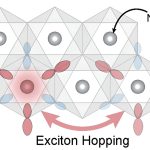Scientists achieve breakthrough in neutrino detection with new prototype
In a major advancement for the international Deep Underground Neutrino Experiment (DUNE), scientists have successfully detected the first neutrinos using a new prototype particle...
Scientists use high-speed cameras to uncover how microplastics move in water
Microplastics are a growing environmental concern, as these tiny particles end up in rivers and oceans, accumulate in living organisms, and disrupt entire ecosystems.
One...
Scientists create new superconductor that could revolutionize quantum computing and electronics
A team of researchers from the California NanoSystems Institute at UCLA has developed a unique material that could be a game-changer for quantum computing...
Scientists find new way to cool and heat buildings with everyday materials
As global temperatures rise, finding sustainable ways to cool and heat buildings has become more critical than ever.
Researchers at UCLA, led by Aaswath Raman,...
What happens when a warp drive breaks down? Scientists simulate the effects
Imagine a spaceship that doesn't use engines but moves by compressing spacetime in front of it. This idea, often seen in science fiction, is...
Why we might not spot solar panel technosignatures
One of NASA's key priorities is understanding the potential for life elsewhere in the universe.
NASA has not found any credible evidence of extraterrestrial life—but...
Physicists uncover secrets of exotic particles key to magnetism
MIT physicists and their colleagues have discovered new insights into special particles that play a crucial role in a unique type of magnetism found...
New optical fibers pave the way for future quantum computing
A team of physicists at the University of Bath in the UK has developed a new type of optical fiber that could revolutionize data...
Liquid lithium loops: A new way to control fusion heat
Fusion energy promises to be a powerful and clean energy source, but controlling the intense heat in fusion reactors is a major challenge.
Researchers at...
How was matter born? Scientists uncover the mysteries of the early universe
The early universe was a scorching 250,000 times hotter than the core of our sun.
At such extreme temperatures, it was impossible for protons and...










